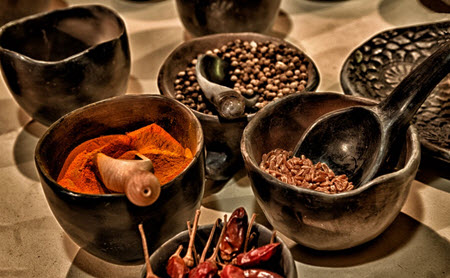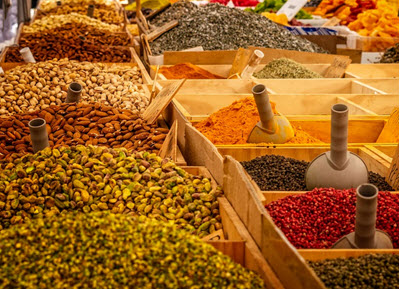Contents
Yunani medicine is a Perso-Arabic traditional medicine, chiefly practiced in Mughal India and in Muslim communities in South and Central Asia.
 The name Yunani means Greek, since this medical system is rooted in the teachings of the Greek physicians Hippocrates and Galen, although over the years, Chinese and Indian traditional medicine have had a significant impact on Yunani medicine.
The name Yunani means Greek, since this medical system is rooted in the teachings of the Greek physicians Hippocrates and Galen, although over the years, Chinese and Indian traditional medicine have had a significant impact on Yunani medicine.
If you are familiar with ancient Greek medicine, you will recognize a lot in Yunani medicine. Just like the ancient Greeks, practitioners of Yunani medicine believe in the importance of keeping four bodily fluids (humors) balanced: blood, phlegm, yellow bile, and black bile. In Yunani medicine, these fluids are called dam (blood), balgham (phlegm), safrā’ (yellow bile), and saudā’ (black bile).
The body’s own power to maintain health is called Quwwat-e-Mudabbira-e-Badan. If this power fails, it can lead to a disruption of the normal balance between the four humors.
A very important work for Yunani medicine is a medical encyclopedia compiled and written by Avicenna and published in the 11th century AD. In English, it is known as “The Canon of Medicine”. Avicenna, also known as Ibn Sina, was one of the most significant physicians and astronomers of the Islamic Golden Age.
As the Delhi Sultanate was established in India during the 13th century, Islamic medical traditions were introduced to the region, where they continued to develop in conjunction with already existing local beliefs regarding health and sickness. Among other things, the teachings of Sushruta and Charaka influenced what we today know as Yunani medicine.
Treatments
First step: Diagnosing the disease
The practitioner diagnoses the disease based on clinical symptoms and laboratory findings. Mizaj (temperament) is an important part.
Second step: Principle of management
The usoole ilaj (principle of management) of the disease is determined based on the etiology in the following pattern:
- Izalae sabab (elimination of cause)
- Tadeele akhlat (normalization of humors)
- Tadeele aza (normalization of tissues/organs)
Examples of principles of management:
| Name | Info |
| Ilaj-Bil-Tadbeer wa Ilaj-Bil-Ghiza
(Regimental therapy) |
Treating the disease by modifying the Asbab-e-Sitta Zarooriya (the six essential pre-requisites of health).
Examples of treatments that can be prescribed to achieve this:
|
| Ilaj-Bil-Advia
(Pharmaceutical therapy) |
The practitioner will formulate a Mamulate Matab Nuskha (prescription) for a drug. The drug can contain one or more ingredients. |
| Ilaj-Bil-Yad
(Surgery) |
Surgical treatment |
Training
India
 In India, there are over 40 Unani (Yunani) medical colleges to chose among. After a 5.5 year long study program, the student is awarded a Bachelor of Unani Medicine and Surgery (BUMS). Only eight Unani medical colleges offer a postgraduate degree to BUMS doctors.
In India, there are over 40 Unani (Yunani) medical colleges to chose among. After a 5.5 year long study program, the student is awarded a Bachelor of Unani Medicine and Surgery (BUMS). Only eight Unani medical colleges offer a postgraduate degree to BUMS doctors.
The higher education in areas of Indian traditional medicine, including Yunani medicine, is monitered by a statutory body named Central Council of Indian Medicine (CCIM). CCIM falls under the government’s Ministry of Health and Family Welfare.
Pakistan
- The National Council for Tibb, Goverment of Pakistan, is awarding four years Fazil-ut-Tibb-wal-Jarahat (B.U.M.S) and registration certificates after four years of qualified Tabibs/Unani studies.
- The Department of Eastern Medicine and Surgery at Qarshi University offers Yunani education and training.
- The Hamdard Research Institute of Unani Medicine at the Hamdard University offers advanced degrees in the field. The programs are accredited by the Higher Education Commission (HEC), the Pakistan Medical and Dental Council (PMDC), and the Pakistan Pharmacy Council (PCP).
South Africa
The University of Western Cape offers a five-year double bachelor’s degree.
